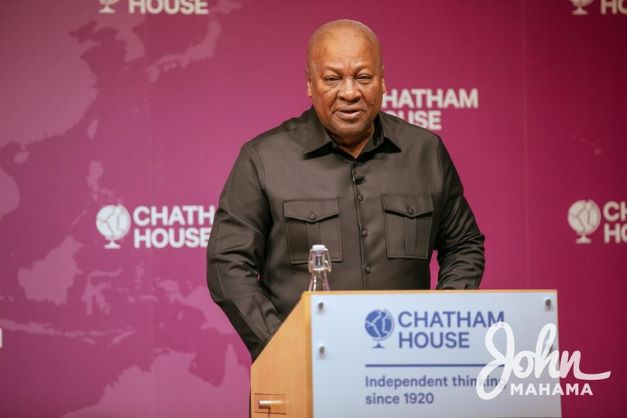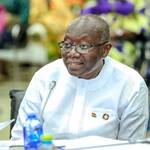Former President John Dramani Mahama says he is not opposed to the domestic debt exchange programme the government is pursuing.
he said this is because debt restructuring is a condition precedent to getting an International Monetary Fund (IMF) programme.
Delivering a public lecture at Chatham House in London on the topic “Africa’s Strategic Priorities and Global Role,” he said Ghana needs to do a debt restructuring to be able to go into the IMF programme.
External factors that negatively affected the economy
COVID-19, Russia-Ukraine war, soaring energy and food prices, higher interest rates, a strong dollar and a global slowdown negatively affected the economy.
Ghana seeking $3 billion loan
Ghana and IMF have reached staff-level agreement on economic policies and reforms to be supported by a new three-year arrangement under the Extended Credit Facility (ECF) of about $3 billion.
But, the IMF has made it clear that the Board approval of the deal is contingent on a successful debt exchange programme.
The Domestic Debt Exchange Programme (DDEP) is gathering positive momentum as the Ghana Securities Industry Association (GSIA) has become the third financial sector player to agree to join the scheme.
The Ghana Association of Banks and the Ghana Insurers Association had also agreed to participate in the programme for institutional bondholders.
Ex-President Mahama urged government to expedite dialogue with bondholders to reach consensus on addressing the nation’s debt restructuring programme.
“What had been the contention is the lack of dialogue and consultation with the bondholders on the domestic side. I know currently negotiations are taking place with the bondholders on the external side, not the same treatment with the domestic bondholders,” he stated.
He pointed out that the period for the debt restructuring had been extended three times and wondered if the deadline of January 31 will be met.
He reiterated that the longer the debt restructuring delayed, the more it would prevent the country from going to IMF Board and called for speedy conclusion of negotiations.
He said he had been an advocate for dialogue; saying “before this whole crisis started, I advised the Government, I said hold a national dialogue on the economy; give what the state of the economy is and let everybody buy into it and understand and then after that seek a broad consensus behind your economic programme.”
He noted that his suggestion was never taken by the Government.
He said the opposition National Democratic Congress (NDC) kept raising the red flags since 2019 about Government’s borrowing programme of raising of three billion dollars in the euro bond market every year and not investing in the productive sectors of the economy.
He said the Government must be prepared to make more sacrifices just as it was asking the people to do the same.
Under the original plan of the domestic debt exchange programme, local bonds were to be exchanged for new ones maturing in 2027, 2029, 2032 and 2037, with annual coupons set at 0% in 2023, 5% in 2024 and 10% from 2025 until maturity.
Government later modified the terms including eight additional instruments to be created, bringing the total number of new bonds to 12, with one maturing each year from 2027 to 2038.
Following the inclusion of pension funds, outcry by labour and advocacy groups, led government to exempt pension funds from the programme.
Despite their initial exemption, individual bondholders have also been included in the programme.
Government is on a series of stakeholder engagements, to reach consensus with affected groups, on the terms of their participation in the Domestic Debt Exchange Programme.
- Friday, April 4, 2025 Newspaper Headlines - 4 April 2025
- Blewett: MTN CEO, a pilot, author, chartered accountant, marathon runner and many more - 3 April 2025
- MTN Ghana launches Y’ello Ladies Network - 3 April 2025

